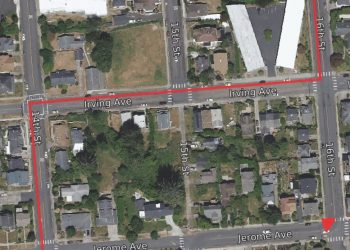BOZEMAN, Mont. – The Center for American Indian and Rural Health Equity (CAIRHE) at Montana State University has received a two-year grant to study COVID-19 testing plan in underserved Montana and Washington populations.
The grant, worth $1.8 million, is funded by the National Institutes of Health as a part of their Rapid Acceleration of Diagnostics plan, also known as RADx. A release from MSU says RADx was designed towards the beginning of the COVID-19 pandemic with the purpose to confront boosting testing capacities throughout the nation.
“A component targeting underserved populations known as RADx-UP funds community-engaged projects, including CAIRHE’s, that partner with vulnerable communities hardest hit by the pandemic,” MSU’s release states.
“The significant health disparities that already existed among Native and rural communities in Montana and our region have become even more pronounced with COVID-19,” physician Alexandra Adams, director of CAIRHE and principal investigator for the new study, said in the release. “Because of poor access to testing in those areas and high rates of existing chronic disease, we are very concerned about the significant impact of COVID-19 in these communities.”
CAIRHE and MSU will take charge in the research and will team up with the University of Washington’s School of Medicine and Institute of Translational Health Sciences, the Fred Hutchinson Cancer Research Center in Seattle and Salish Kootenai College and the Confederated Salish and Kootenai Tribes.
“Montana State is committed to building strong, equitable and sustainable partnerships with tribal nations, as well as the University of Washington’s ITHS program,” Jason Carter, MSU vice president for research, economic development and graduate education, said in the release. “Dr. Adams and her CAIRHE team are experienced at building meaningful and impactful partnerships, and I am not at all surprised by the NIH investment to this remarkable team.”
Trials will begin spring 2021 involving a random selection of 200 people in each of the locations contrasting two approaches to at-home COVID-19 testing.
MSU’s release says the active procedure will involve a local health instructor delivering tests to subjects and offer help. The passive procedure will involve subjects receiving test kits in the mail or picking it up at a site, according to MSU’s release
“It’s our hypothesis that home-based testing will be more efficient, have a greater impact and be better accepted using the active delivery of test kits by trusted community members,” Adams said in the release.
Researchers will conduct interviews and focus groups among the subjects before the trail, asking their knowledge surrounding COVID-19 and deterrent strategies, opinions on COVID-19 testing and cultural factors influencing their testing choices. According to MSU’s release, Adams says this information will be useful in researcher’s pinpointing cultural, social, behavioral and economic obstacles in the way of testing within these populations.
“Using this information, we can develop the educational materials that will accompany the test kits so that they’re culturally appropriate and most effective for each community,” she added in the release.
Subjects will take a survey after the trial for researchers to examine the acceptability and practicalities of at-home COVID-19 testing.
“At the end of the day, our goal is to decrease the devastating impact of COVID-19 in these vulnerable rural areas,” Adams said in the release.











